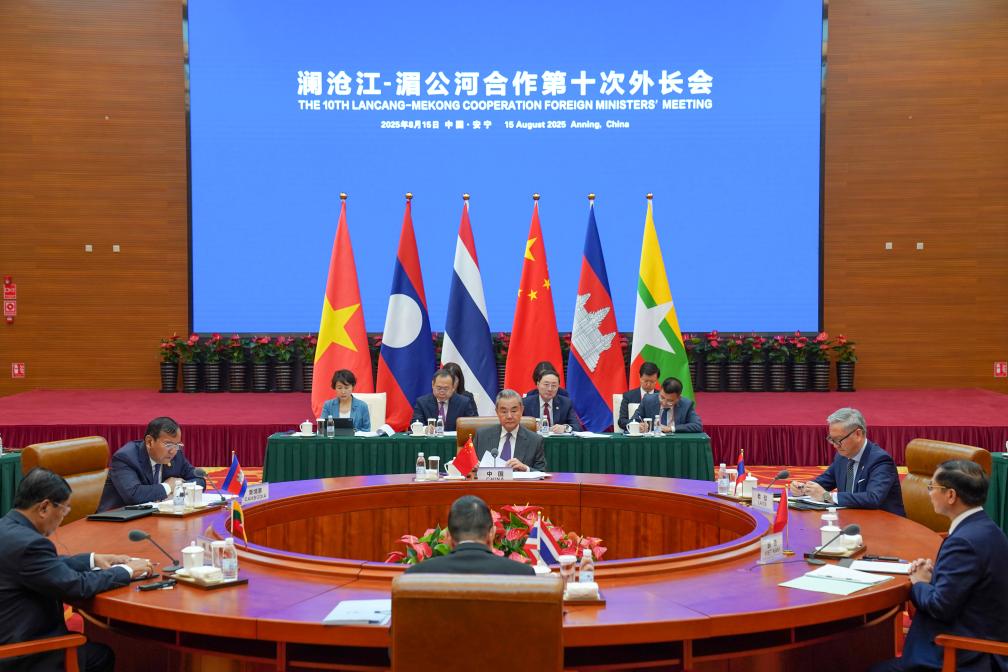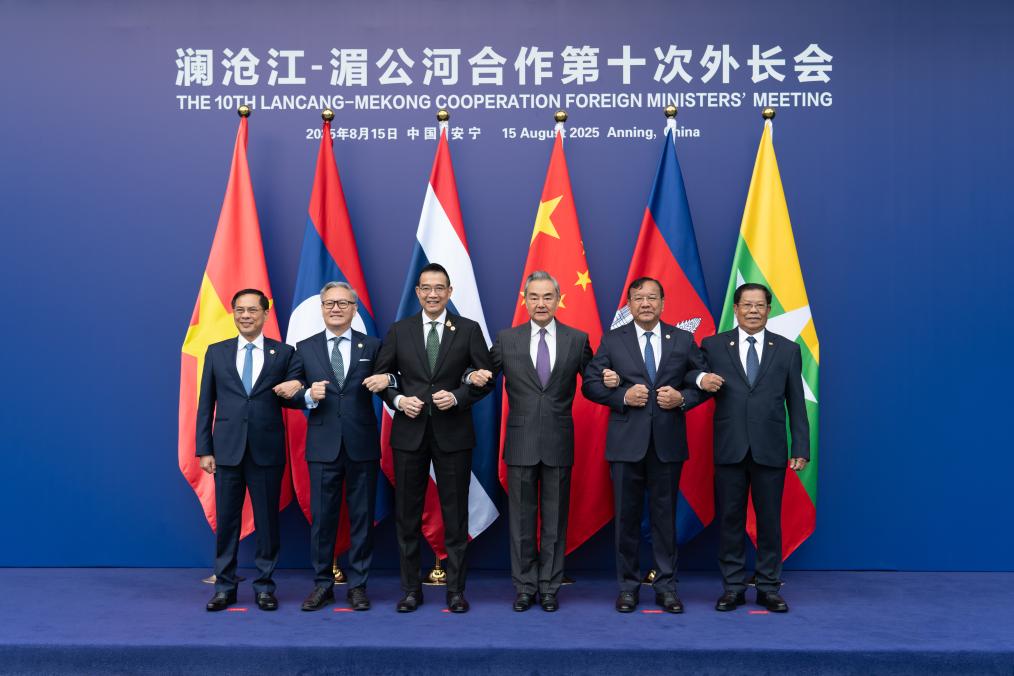
Foreign ministers from China, Thailand, Cambodia, Laos, Myanmar and Vietnam pledged on Friday to strengthen solidarity, openness and cooperation across various fields in the face of a complex and severe international landscape.
At the 10th Lancang-Mekong Cooperation Foreign Ministers' Meeting in Anning, Southwest China's Yunnan province, they also vowed to uphold multilateralism, safeguard free trade, step up the fight against cross-border crime, jointly tackle challenges, and work together to maintain peace, stability and prosperity in the region.
The two-day meeting, which concluded on Friday, adopted three outcome documents outlining progress on the LMC's action plan, identifying new projects to be funded in the coming year, and setting out ways to strengthen cooperation on non-traditional security issues.
Initiated and launched in 2015, the LMC is an innovative type of regional cooperation mechanism among the Lancang-Mekong countries. The Lancang-Mekong region refers to the countries along the Mekong River, known as the Lancang River in China.
All sides agreed at the meeting that the LMC has assisted the socioeconomic development in all six countries, promoted regional economic integration, improved the well-being of people in the river basin, and contributed to regional peace, stability and sustainable development.
READ MORE: Official: Lancang-Mekong Cooperation provides benefits to members
Chinese Foreign Minister Wang Yi said that since the first foreign ministers' meeting held in Yunnan, the LMC has transformed from a seed into "a towering tree" over the past decade, with cooperation focusing on the five priority areas of connectivity, production capacity cooperation, cross-border economy, water resources, and agriculture and poverty reduction.
Trade between China and the five Mekong countries reached $437 billion in 2024, up 125 percent from a decade ago.
Noting that the world is facing greater instability with hegemonism, power politics, unilateralism and protectionism on the rise, Wang stressed that peace, development, cooperation and mutual benefit remain the common aspirations of the people and the prevailing trend of the times.

China, he said, will continue to follow the principles of amity, sincerity, mutual benefit and inclusiveness, ensuring that Chinese modernization brings more benefits to Mekong countries.
Looking ahead, he proposed strengthening top-level planning, promoting innovative development, deepening law enforcement cooperation and enhancing people-to-people exchanges to build version 2.0 of the LMC and usher in a new golden decade.
To hold on to the "steering wheel" of the LMC's institutional framework, Wang called for efforts to strengthen high-level strategic communication, make preparations for the leaders' meeting and promote the establishment of an international secretariat for the LMC.
ALSO READ: Telecom fraud combating cooperation bears fruit in Lancang-Mekong nations
On the sidelines of the LMC meeting, as proposed by Thailand, the co-chair of the LMC, an informal discussion among the foreign ministers of China, Laos, Myanmar and Thailand was held on Friday.
Wang said that China, Laos and Thailand, as friendly neighbors of Myanmar, have a better understanding of its unique national conditions and hope even more for Myanmar to return to stability and achieve national reconciliation.
He stressed the importance of supporting a Myanmar-owned and Myanmar-led peace process, promoting dialogue to resolve differences, prioritizing people's livelihoods and being vigilant against external interference that could disrupt regional stability.
The Myanmar side briefed the meeting on the country's domestic situation and preparations for the upcoming elections, noting that tensions have eased since the last such four-party meeting held in August last year.
During the meeting, the four ministers also exchanged views on joint efforts to combat cross-border crime.
READ MORE: Dreams of youths flow along Lancang-Mekong River
Wang said that since the previous meeting, the four countries have achieved notable results in tackling cross-border crime by strengthening border control and management, but continued collaboration is still needed given the region's security situation.
The four sides agreed to continue strengthening law enforcement and security cooperation, intensifying efforts to combat online gambling, telecom fraud, drug and arms trafficking, human trafficking, and other cross-border crimes, in order to jointly safeguard regional peace and stability.
Contact the writer at mojingxi@chinadaily.com.cn


